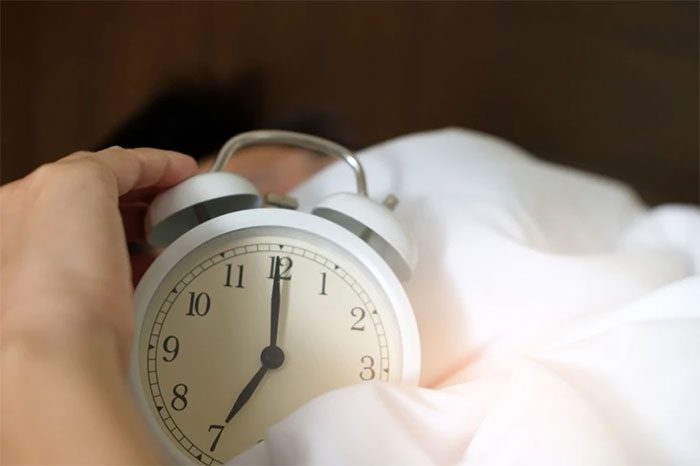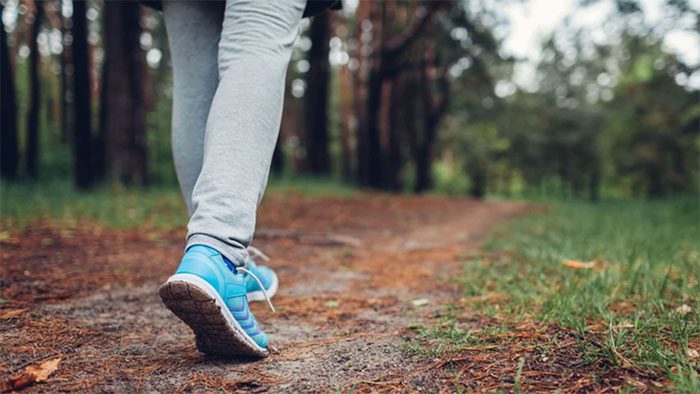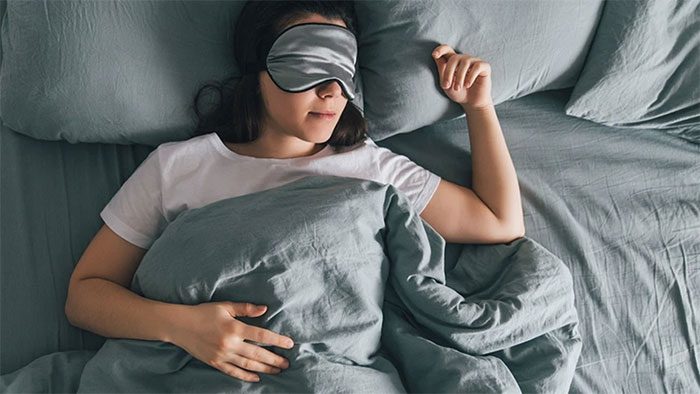According to Traditional Medicine, all internal organs operate on a schedule that we can refer to as the body’s biological clock. Understanding this, we should align our activities with this clock to protect and restore our organs, thereby enhancing overall health.
Activity Schedule of Internal Organs in the Body
- 1. What is the body’s biological clock?
- 2. Benefits of Following the Body’s Biological Clock
- 3. Activity Schedule of Internal Organs According to the Biological Clock
- 5 AM to 7 AM: Activity Time of the Large Intestine
- 7 AM to 9 AM: Activity Time of the Stomach
- 9 AM to 11 AM: Activity Time of the Pancreas and Spleen
- 11 AM to 1 PM: Activity Time of the Heart
- 1 PM to 3 PM: Activity Time of the Small Intestine
- 3 PM to 5 PM: Activity Time of the Bladder
- 5 PM to 7 PM: Activity Time of the Kidneys
- 7 PM to 9 PM: Activity Time of Circulation
- 9 PM to 11 PM: Activity Time of Multiple Organs
- 11 PM to 1 AM: Activity Time of the Gallbladder
- 1 AM to 3 AM: Activity Time of the Liver
- 3 AM to 5 AM: Activity Time of the Lungs
- 4. Is the body’s biological clock accurate?
1. What is the body’s biological clock?
The body’s biological clock in traditional medicine is based on the concept of “Qi.” This term encompasses energy in various forms. Qi exists in everything, from the Earth to our bodies and even our emotions. Qi is constantly changing as it moves throughout the body and interacts with people and objects.
According to the body’s biological clock in traditional medicine, Qi moves in two-hour intervals across the organ systems within a 24-hour cycle. During sleep, Qi withdraws inward to restore the body. An important time frame is from 1 AM to 3 AM, which is believed to be when the liver cleanses the blood and prepares for Qi to flow outward again.

The activity schedule of internal organs is referred to as the body’s biological clock. (Image: Internet).
2. Benefits of Following the Body’s Biological Clock
The body’s biological clock can help us adjust daily activities in accordance with the optimal functioning times of corresponding organs. This allows individuals to maximize their energy and support organ functions. For instance, exercising during the lung’s activity period from 3 AM to 5 AM can yield significant benefits.
By incorporating methods that align with the body’s biological clock, such as drinking warm lemon water in the morning to support liver health, individuals can enhance their overall well-being. These practices harmonize with the body’s natural rhythms, promoting balance and vitality.
3. Activity Schedule of Internal Organs According to the Biological Clock
According to the body’s biological clock in traditional medicine, human internal organs operate during specific time frames, as follows:
5 AM to 7 AM: Activity Time of the Large Intestine
During this period, the large intestine becomes highly active. It is an ideal time for bowel movements, helping the body eliminate toxins from the previous day. If you experience constipation, try drinking half a liter of warm water in the morning. The warmth causes vasodilation, and hydration aids bowel movements.
Additionally, during this time, you should wash your face and brush your hair. Brushing your hair is believed to help clear energy for the mind.
7 AM to 9 AM: Activity Time of the Stomach
The stomach is most active during this period, making it the best time to have breakfast. Eating during this time optimizes digestion and nutrient absorption. You should consume warm, nutritious foods. This might explain why breakfast is often regarded as the most important meal of the day.

7 AM to 9 AM is the activity window for the stomach, making it the best time to have breakfast. (Image: Internet).
9 AM to 11 AM: Activity Time of the Pancreas and Spleen
The pancreas and spleen secrete enzymes during this time to aid digestion and provide optimal physical energy for your daily activities.
11 AM to 1 PM: Activity Time of the Heart
The heart works diligently to pump nutrients throughout the body, providing energy and nourishment. This period is ideal for lunch; choose a light, cooked meal. Napping for an hour or enjoying a cup of tea is also recommended during this time. Positive emotions, such as joy or even sadness, can often be experienced during this period.
1 PM to 3 PM: Activity Time of the Small Intestine
During this period, the small intestine completes the digestion and absorption of food consumed earlier in the day. Engaging in daily tasks or exercising is encouraged as it can support the body’s energy flow. Weakness in this organ can lead to painful urination or diarrhea.
3 PM to 5 PM: Activity Time of the Bladder
The bladder functions during this period as metabolic waste moves into the kidney’s filtering system. This is an excellent time for studying or engaging in work that requires focus. Drinking plenty of water and consuming tea can aid the cleansing process. Some individuals may experience feelings of irritability or withdrawal during this time.
5 PM to 7 PM: Activity Time of the Kidneys
The kidneys play a crucial role in filtering blood, maintaining healthy respiration, sexual desire, bone development, aging, and more. During this time, you should have dinner and activate circulation through activities such as walking, massage, or stretching.

Walking between 5 PM to 7 PM can stimulate circulation. (Image: Internet).
7 PM to 9 PM: Activity Time of Circulation
During this time, nutrients are transported to capillaries and each cell, helping them function properly. Reading is highly encouraged during this period, while mental activities should be limited. Notably, some individuals may find it challenging to express emotions during this time. However, it is considered an opportune time for intimacy or conception.
9 PM to 11 PM: Activity Time of Multiple Organs
During this period, the body’s homeostasis is regulated, and enzymes are replenished. Therefore, it is recommended to sleep during this time to conserve energy for the next day.

9 PM to 11 PM is the time you should relax and sleep. (Image: Internet).
11 PM to 1 AM: Activity Time of the Gallbladder
This is the period when positive energy begins to rise, helping you stay active during the day and accumulate energy while you sleep. Deep sleep is essential to wake up feeling energized.
1 AM to 3 AM: Activity Time of the Liver
The liver is highly active during this period, working to detoxify the body and produce fresh blood. Waking during this time may indicate excess positive energy or liver issues and detoxification processes. It is also associated with feelings of anger, frustration, and rage.
3 AM to 5 AM: Activity Time of the Lungs
The lungs replenish oxygen to the body during this period, making it essential for you to continue sleeping so they can function effectively. Soothing exercises such as breathing exercises can help if you wake up. The lungs are also associated with feelings of sadness and melancholy.
4. Is the Body’s Biological Clock Accurate?
There is limited scientific research on whether the body’s biological clock, according to traditional medicine, is accurate, and whether adhering to this two-hour cycle can help protect and enhance organ function.
However, numerous studies support the idea that the human body has a biological clock that influences everything from sleep to athletic performance.
The timeframes in the body’s biological clock as per traditional medicine closely align with the body’s needs. Therefore, maintaining a healthy lifestyle and diet according to these timeframes can promote good health.
It is crucial to eliminate habits such as staying up late, oversleeping, being sedentary, or smoking. By doing so, you can best protect your health.



















































